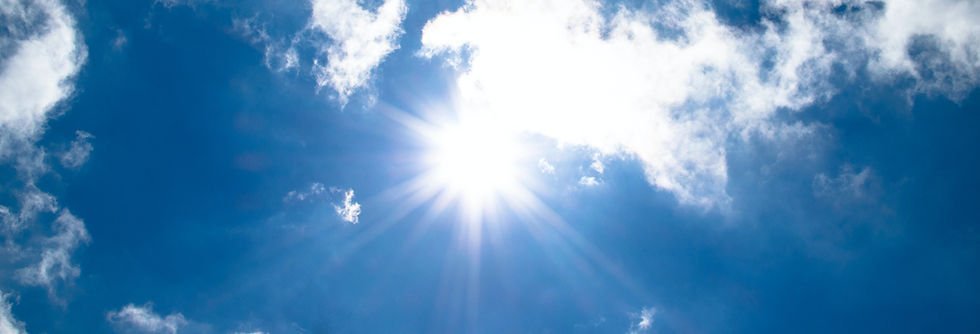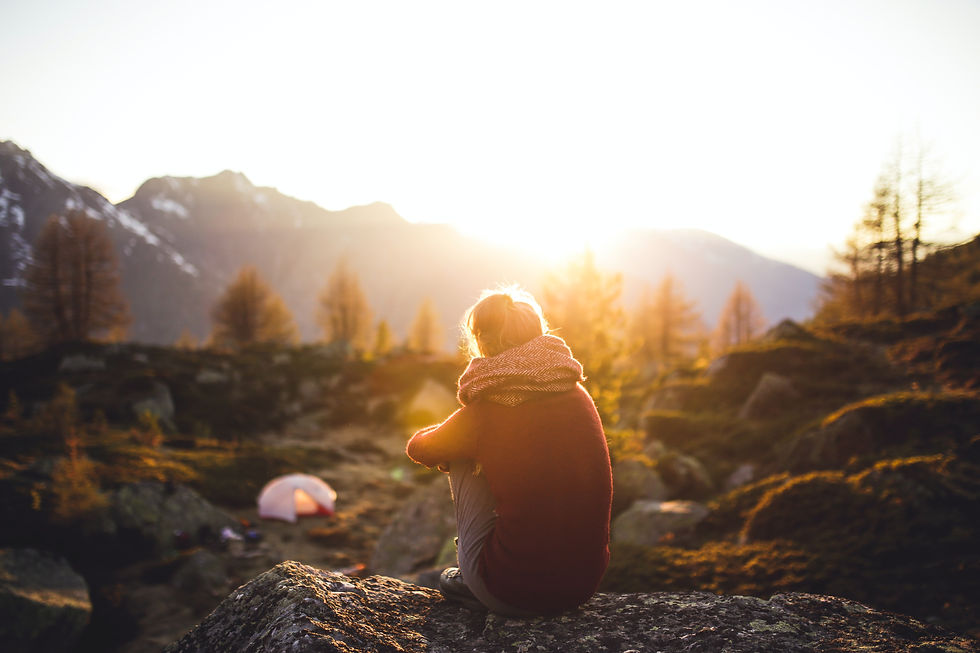How much sun do you need to sleep?
- Travel To Sleep
- Jul 23, 2022
- 5 min read
Updated: Aug 12, 2022
You know how sunlight keeps you awake, but a lack of it makes you feel like death? It turns out that the amount of light exposure you get during the day can affect your sleep quality at night.

In fact, researchers have found that people who are exposed to more light throughout their day tend to sleep better than those who spend all their time cooped up in an office with no windows.
You may be wondering: How much sun do I need to sleep well? Well, thankfully there's a calculator for that! Using information gathered from studies conducted on various types of people in different regions around the world (including yours truly), researchers have created an equation based on personal factors including age and gender that determines how many hours per day one needs to be outdoors under natural light. It's called "the minimum threshold level" or MTL for short (and by short I mean long). Once you plug your info into this calculator, it'll tell you how much sun exposure is necessary for optimal health and productivity.
Do note that this is not an exact science—your mileage may vary! But if my experience with MTL is any indication then getting outside and enjoying some sunshine should definitely make you feel less tired when going to bed tonight. Also keep in mind that if your job requires lots of sitting/standing/non-movement then making sure you take frequent breaks throughout the day would be best practice too."
Daylight is essential for the human body to regulate its sleep-wake cycle.

Your body clock is a biological clock that helps you sleep and wake up on time. It's set by light in the day and dark at night, so if you don't have enough daylight, it could be messing with your sleep cycle.
Natural sunlight and artificial light both can impact your body's internal clock.
The effects of natural sunlight and artificial light are similar on your body, but they're not identical. In fact, the circadian rhythm (the internal clock that regulates your sleep-wake cycle) can actually be influenced by either type of light.
Your body needs a certain amount of bright, natural light to set its internal clock so that it knows when to start producing melatonin and preparing for sleep. The amount varies depending on the season and other factors like how much darkness you've been exposed to throughout the day—but generally speaking, experts recommend getting at least 30 minutes per day in direct sunlight during midmorning or midafternoon if possible.

Artificial light from indoor sources such as lamps or LEDs also helps regulate your circadian rhythm—it just doesn't have quite as strong an effect as natural sunlight does. For this reason, it's still important to avoid screen time at least an hour before bedtime if possible; both blue-light emitting devices (such as smartphones) and red-light emitting devices (like tablets) suppress melatonin production in the brain even though they're technically "off" when you close down your browser or put down your phone for the night!
At night, our bodies produce melatonin, which induces drowsiness.
For example, melatonin is a hormone produced by the pineal gland that induces drowsiness. It's released into your bloodstream when it's dark and helps to regulate your sleep-wake cycle. (If you've ever taken melatonin supplements or experienced jet lag, then you know how powerful this hormone can be.)
In other words: The more sunlight we get during the day—or at least during our waking hours—the more melatonin our bodies produce at night. And without enough exposure to natural sunlight during the course of every day, we might not produce enough melatonin for an adequate amount of shut eye.
The hormone melatonin doesn't just make you sleepy.
Producing melatonin at night is important because of its many functions. Melatonin is a hormone that not only helps you sleep, but also regulates immune function and helps control body temperature. It's even thought to protect against some types of cancer. In short, the more time you spend outside in the daylight and away from artificial light (like your computer screen or phone), the more melatonin your body produces when it’s bedtime—and that means better sleep for you!
A melatonin supplement isn't a substitute for natural sunlight or good sleep habits.
Melatonin supplements can be dangerous if taken in the wrong way. If you're taking a melatonin supplement, make sure you understand how to take it so that you don't overdose and end up with side effects like drowsiness or headaches. Melatonin supplements are also not a substitute for good sleep habits—they won't make up for an unhealthy lifestyle or help fix underlying issues with your circadian rhythm.
Finally, melatonin supplements are not a substitute for natural sunlight exposure: they are synthetic versions of the hormone produced by the brain's pineal gland when it's exposed to light during the day. The best thing to do is get all your sun exposure during the day (and preferably outside), then take a supplement before bedtime to ensure you'll fall asleep easily once darkness falls.
Melatonin production decreases in older adults, which may be related to insomnia and sleep disorders.
If you’re having trouble sleeping, it may be because of a decrease in melatonin production as you age.

Melatonin is a hormone that regulates your sleep-wake cycle and helps to control other hormones such as cortisol, which can affect your mood. As you age, the amount of melatonin produced by your body decreases—meaning that your production of this hormone decreases with age. This can lead to insomnia and other sleep issues.
In addition to causing insomnia or other sleep problems, decreased melatonin production is also associated with increased risk for other health issues such as diabetes and cardiovascular disease.
Kids and teens are particularly vulnerable to the dangers of poor sleep habits.
Kids and teens are particularly vulnerable to the dangers of poor sleep habits. A study published in the Journal of Clinical Sleep Medicine found that teens who slept less than seven hours a night were more likely to be overweight, have poor academic performance, and feel depressed or sad.
Sleep deprivation is also linked with an increased risk of developing depression or anxiety disorders later in life. This can have a significant impact on your child's health and well-being, affecting both their physical and mental health as they grow older.

Sunlight is important for regulating your body's circadian rhythm, which helps you sleep well at night.
Sunlight is important for regulating your body's circadian rhythm, which helps you sleep well at night. The best source of vitamin D is sunlight and it can help you get enough vitamin D. Sunlight also has other benefits, such as improving mood and reducing risk of depression, according to research published in the journal Optometry & Vision Science.
So there you have it: the sun is good for you, and so is a good night's sleep. If you want to sleep better at night, get some sunlight. The best way to do this is to spend your day outdoors, even if it’s just for a walk or a jog. You don’t need to sunbathe on purpose, but just make sure that your body gets enough light during the day so it can manufacture more vitamin D and melatonin at night when they are needed by our bodies.












Comments